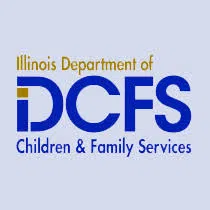The Illinois legislature has taken a significant step towards reforming the foster care system with the unanimous passage of the Kindship in Demand Act, or KIND Act, which is now headed to Governor JB Pritzker’s desk for approval.
On Monday, the House voted to mandate that foster care officials prioritize placing children with relatives whenever possible. This “kin-first approach,” as outlined in House Bill 4781, aims to enhance the well-being of children by keeping them connected to family members or trusted individuals in their lives.
Governor Pritzker expressed his support for this initiative during a news conference in December, emphasizing its importance for families and children in need.
The new legislation will also enable the state to access additional federal funding. Currently, while family members can be reimbursed for care costs, certification under the KIND Act would allow for expanded federal financial support. Nora Collins-Mandeville from the American Civil Liberties Union of Illinois highlighted this potential benefit during a committee discussion.
The Department of Children and Family Services (DCFS) has faced significant funding challenges, particularly following a two-year budget impasse that concluded in 2017, which strained its ability to place children promptly in appropriate care settings.
Currently, nearly 10,000 children in DCFS care live with family members, yet over 60% of those families lack access to essential resources such as monthly foster care payments and support groups. Research from Casey Family Programs, the nation’s largest foundation dedicated to foster care, indicates that kin-first systems not only reduce the risk of abuse but also increase the chances of achieving stable, permanent placements for children.
Since 1995, DCFS has successfully reduced the number of children and young adults in its care from 50,000 to 16,000 in 2023. However, that number has risen to 18,000 in the past year, indicating ongoing challenges. In 2019, Illinois ranked in the bottom third of states for placing children in permanent homes, with a noted decrease of 7.8% in permanent placements between 2017 and 2021.
The KIND Act also proposes changes to the criminal background check criteria for relatives and foster parents. The federal government permits DCFS to waive non-safety-related licensing requirements for relative caregivers on a case-by-case basis, allowing for a more nuanced evaluation of a relative’s criminal history and its relevance to child safety. This provision acknowledges issues such as the overrepresentation of minorities in the prison system, particularly concerning minor drug offenses.
Additionally, the bill will enhance the role of courts in family-finding efforts, ensuring that DCFS adheres to notifying relatives within 30 days whenever a child is removed from their parents’ custody. This comprehensive approach aims to strengthen family ties and improve outcomes for children in the foster care system across Illinois.

Comments